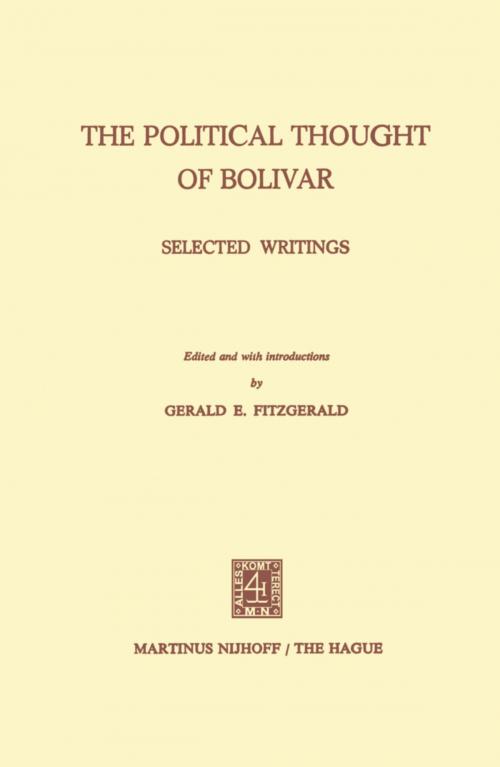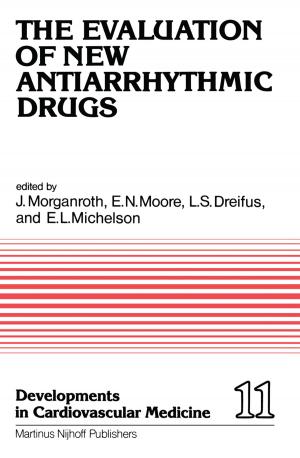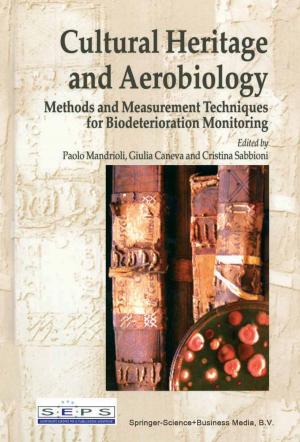| Author: | ISBN: | 9789401030274 | |
| Publisher: | Springer Netherlands | Publication: | December 6, 2012 |
| Imprint: | Springer | Language: | English |
| Author: | |
| ISBN: | 9789401030274 |
| Publisher: | Springer Netherlands |
| Publication: | December 6, 2012 |
| Imprint: | Springer |
| Language: | English |
Life of Bolivar Sim6n Bolivar was born in Caracas, Venezuela, on July 24, 1783, and died in Santa Marta, Colombia, on December 17, 1830. His life was relatively brief, but it was crowded with many activities, many hardships, many re verses, and many accomplishments. He is now revered as the Liberator of five Latin American countries: Bolivia, Colombia, Ecuador, Peru, and Venezuela. A descendant of a distinguished Creole family that originated in Biscay, Spain, the young Bolivar was orphaned at an early age and was cared for by his uncle, Carlos Palacios. As was customary, tutors were employed to edu cate the young boy. One of these was Andres Bello, later to become a distin guished scholar. Another was Sim6n Rodriguez, who was particularly influ enced by Rousseau and other eighteenth century philosophers. Later the young BoHvar was sent to Spain to continue his education. There he met Maria Teresa Rodriguez del Toro, whom he married in 1802. Bolivar and his bride returned to Caracas, where she died of yellow fever in 1803. Boli var never remarried. Returning to Europe, Bolivar went to Spain and then to France. There he found that Napoleon, the former republican, had proclaimed himself Em peror of the French. After a trip to Italy, Bolivar returned to Caracas in 1807 by way of several cities in the United States.
Life of Bolivar Sim6n Bolivar was born in Caracas, Venezuela, on July 24, 1783, and died in Santa Marta, Colombia, on December 17, 1830. His life was relatively brief, but it was crowded with many activities, many hardships, many re verses, and many accomplishments. He is now revered as the Liberator of five Latin American countries: Bolivia, Colombia, Ecuador, Peru, and Venezuela. A descendant of a distinguished Creole family that originated in Biscay, Spain, the young Bolivar was orphaned at an early age and was cared for by his uncle, Carlos Palacios. As was customary, tutors were employed to edu cate the young boy. One of these was Andres Bello, later to become a distin guished scholar. Another was Sim6n Rodriguez, who was particularly influ enced by Rousseau and other eighteenth century philosophers. Later the young BoHvar was sent to Spain to continue his education. There he met Maria Teresa Rodriguez del Toro, whom he married in 1802. Bolivar and his bride returned to Caracas, where she died of yellow fever in 1803. Boli var never remarried. Returning to Europe, Bolivar went to Spain and then to France. There he found that Napoleon, the former republican, had proclaimed himself Em peror of the French. After a trip to Italy, Bolivar returned to Caracas in 1807 by way of several cities in the United States.















